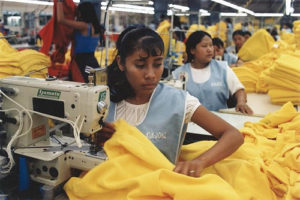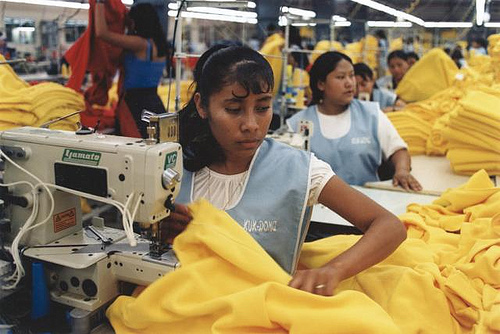The election of Donald Trump in the US will very likely see a lot of industry return to the US for three reasons:
- He will reduce taxes and regulations;
- Energy and transport costs will be much cheaper due to much more sensible environmental regulations;
- He will make deals with/ impose penalties on US companies to either stay in the US, or bring their facilities back to the US.
 This will create a quandary for “social justice” activists, as it could lead to a partial deindustrialisation of the developing world. On the one hand, this could help reduce pollution, and child slavery and sweat shops may become less prevalent. But it will hamper the development of some of the poorest countries on earth.
This will create a quandary for “social justice” activists, as it could lead to a partial deindustrialisation of the developing world. On the one hand, this could help reduce pollution, and child slavery and sweat shops may become less prevalent. But it will hamper the development of some of the poorest countries on earth.
Once the factories are gone, the sweatshop kids may simply return to slaving away in a rice paddy for sixteen hours a day, to suffer abuse, malnutrition and disease, away from the activists’ cameras.
On the other hand, there is a theory that suggests that multinational corporations move their facilities around the world to where the regulations are the cheapest. When labour conditions and wages improve, and regulations increase, they move on to the next easiest option. In the process, wealth and modernisation are spread throughout the world.
The downsides of this modern industrialisation are no different to those experienced experienced in the West over the last two centuries. What Dickens detailed in the 19th Century, change.org details in the 21st, but in the long run, we all become better off.
With a Trump administration slashing taxes and regulations in America, the rest of the world will have to do the same if it is to compete. Thus, fears of a decrease in free trade may be seriously overblown.
Photo by marissaorton 










